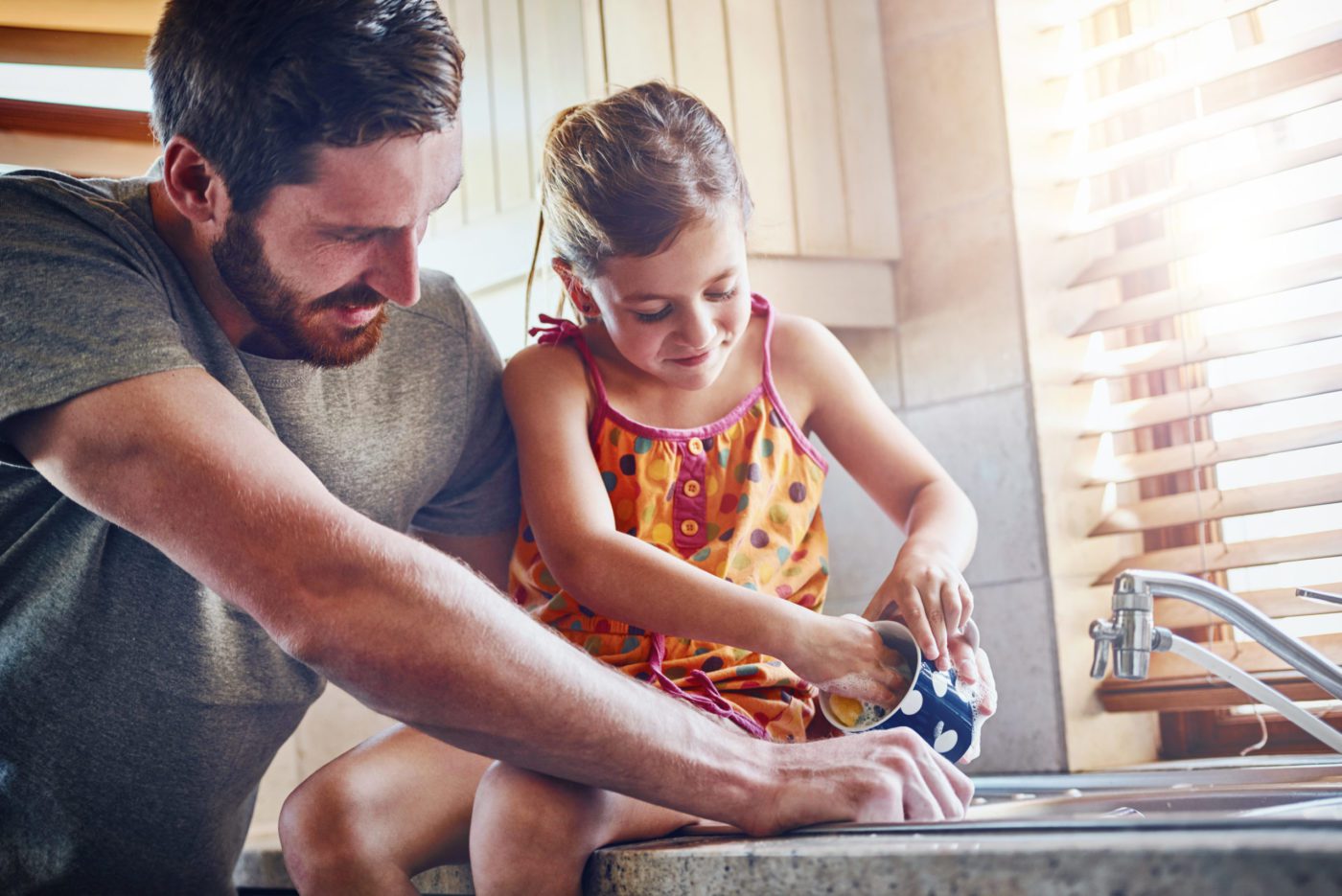“Do your chores. The hallway’s a mess,” I told her at least three times that night, feeling like I was dealing with an irresponsible kid. “OK, Dad,” she murmured. But I was tired and didn’t notice until I awoke the next morning that her chores, which include sweeping and mopping, weren’t done. The evening before, I reminded her about the dust bunnies, and she complained. When I woke up, the first thing I saw was the unclean floor and the kid who’s supposed to clean it—sleeping late.
Whether it’s something seemingly small like leaving a cabinet open or something bigger like leaving a window down overnight in our van, it seems my kids have a tough time being responsible. Over the years, I haven’t yet solved this irresponsible child puzzle. But I’ve managed to collect some helpful questions. Here are 5 questions to ask when your child won’t accept responsibility.
Question 1: Is there anyone around who models similar behavior?
It has been said that what parents allow in moderation kids will do in excess. Consider what your child sees at home, at school, or when visiting with family and friends. What are you and others modeling for your kids? Now, knowing this does not clear your kid from his or her behavior. But the point is to be aware of your kids’ surroundings and influences. The issue of not taking responsibility may simply be an influence.
Question 2: Is my method of discipline working?
What can you change in your discipline to improve your child’s level of responsibility?In my daughter’s case, she may deflect blame because she wants to avoid discipline. Assess what discipline you use to correct the behavior. Does it work? Accepting responsibility is a learned skill. You can help that process along or slow it down. Using the wrong discipline can result in an irresponsible child. Reevaluate whether you’re using methods of discipline that simply don’t work. Then, adjust accordingly. What can you change in your discipline to improve your child’s level of responsibility?
Question 3: Has my child been blamed for things he or she didn’t do?
With a family of five, there’s always a lot of blame to go around. Sometimes, the blame is not evenly distributed. Be careful not to make snap judgments when you don’t have the full story, have a credible witness, or see it with your own two eyes. We want to be even-handed and not overly judgmental with our kids. Kids who have been blamed for something they didn’t do in the past are more likely to feel like you don’t care about them and may not accept responsibility for other things.
Question 4: Have I checked with family, friends, or teachers?
Have others witnessed this behavior in my kid? It’s important to gain perspective of responsibility issues with your kids. It’s helpful to know if your kid is not taking responsibility in any area of his or her life or if it’s a problem that only arises in certain times or places. Grandparents, other family, friends, and teachers may be able to add valuable insights into solving the puzzle. If you can, get input from anyone who interacts with your child. Perhaps it feels like your kid is never going to change. But maybe your kid is doing better than you originally thought.
Question 5: In what areas of my kid’s life does he or she take responsibility?
When you’re frustrated as a dad, it’s easy to think your most irresponsible child never accepts responsibility. But odds are, that is not the total picture. Are there any areas of life where your kid already accepts responsibility? Has your child ever accepted responsibility for anything? It may be something small, but if you look closely enough, you may find some area where your child is showing responsibility. You’ll want to reinforce that behavior going forward.
Sound off: What helps a dad who’s dealing with an irresponsible child?











Huddle up with your kids and ask, “What do you think it means to be responsible?”